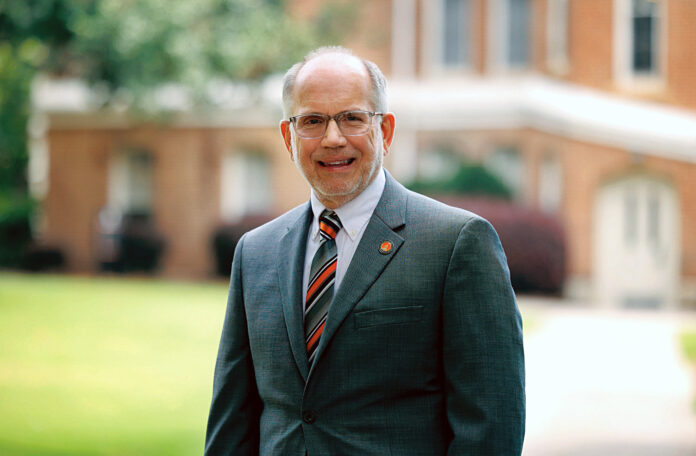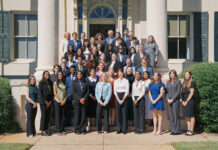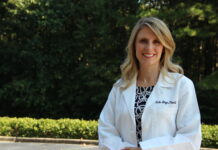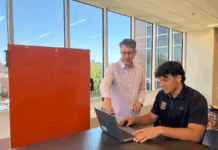Long before he was a history professor, the new College of Liberal Arts and Sciences dean was interested in the past.
“My dad was a seminary professor who taught, among other things, Old Testament history, and he loved history,” said Dr. John Thomas Scott, who goes by Tom. “He would take me around historical sites and give me history books to read. So, I’ve been a history nerd since I was a kid.”
Those experiences during his early years led him to pursue a bachelor’s, master’s and Ph.D. in history. He joined Mercer’s faculty in the history department in 1991 and has served two stints as chair. Over the past three decades, he’s been doing some of what he enjoys most: conducting research, writing, teaching and learning.
Now, he’s applying his skills and experience to a new role. In March, Dr. Scott was named dean of the College of Liberal Arts and Sciences. He previously served as interim dean for six months, after former dean Dr. Anita Olson Gustafson assumed the presidency of Presbyterian College in Clinton, South Carolina.
Dr. Scott has spent the past few months learning his new role, including getting to know the needs of other departments, understanding the college’s complex budget and working with colleagues across campus offices.
“The learning curve is very steep,” he said.
The College of Liberal Arts and Sciences is the largest and oldest of Mercer’s schools and colleges. Nearly all traditional undergraduate students will take at least one class in the college to fulfill a general education requirement.
A historian and teacher
Dr. Scott’s primary field of research has been 18th and early 19th century North Atlantic history. Most of it has been geared toward religious history and individuals at that time. For the past 15 years, his research has focused on Georgia in the 18th century.
“What fascinates me is different people with different ways of living,” he said. “The past is the most diverse place you will ever find because you get to see changes over time, from decade to decade and century to century.
“And so, you really do get exposed to this very broad rainbow of people and their experiences and their struggles.”
The goal of any academic, Dr. Scott said, is to try to understand the human experience, make sense of it and figure out a path forward for yourself, your community and the world.
“I see the past as the largest laboratory. We’re only observers. We can’t redo it, but there’s a large amount of information in the past that’s available,” he said. “And so, I see the past as really one of the best elements to study to understand the human experience.”
For Dr. Scott, his faith plays an important role as well. He regularly teaches Sunday school classes at First Presbyterian Church of Macon, where he and his wife, Holly, are longtime members. The couple have four adult children.
Dr. Scott enjoys travel, yardwork and classic films. A movie poster for Casablanca hangs behind his desk in his office in the R. Kirby Godsey Administration Building. On the wall to his right is a poster for The Searchers, a 1956 Western. Science fiction is his favorite genre.
“One of the courses that I have taught is a class on how to use American film as historical documents,” he said. “In that class we spend probably half the time trying to teach them how to read a film, so we talk about things like editing and lighting and character positioning and costuming. But we also talk about how a film can be used to understand the period that the film was made in.”
His love for classic films is another interest he picked up from his dad growing up in Clinton, Mississippi, a small town outside of Jackson.
“My dad loved classic movies,” he said. “When I was growing up, you could only catch a classic movie if it happened to run on one of the three channels that was available at the time or if it was a re-release at a local theater that you could go to. And I would watch old films with my dad.”
In college, Dr. Scott studied at the University of Leeds in the United Kingdom. The experience forced him to find his own way in a place unlike home and interact with people different from himself.
The tutorial-style education format opened his eyes to what student and professor relationships could be like and inspired him to strive to have those kinds of relationships in his own career. As a historian, he saw early America from the British perspective.
“I think that study abroad experience really set the path of my career in terms of thinking about the past and thinking about what I wanted to do,” he said.
Describing himself as a professor at heart, Dr. Scott said he never imagined he would be a dean.
“But as events turned out, here I am, and so, it has suited me,” he said.








